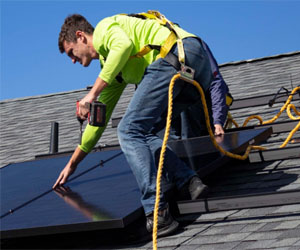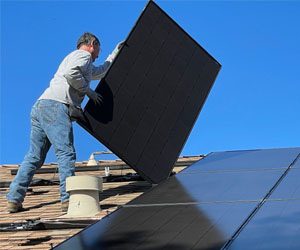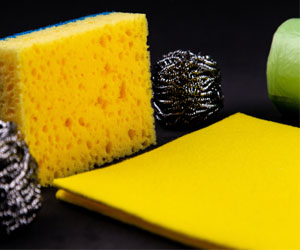


A Small Step Toward A Sustainable Future

As global environmental concerns continue to escalate, the way we approach everyday tasks is evolving. Planet-conscious cleaning is one such transformation, emphasizing the use of eco-friendly cleaning products and practices to reduce our environmental impact. In this article, we will explore the significance of planet-conscious cleaning and its role in creating a cleaner, greener future.
The Significance Of Planet-Conscious Cleaning
Reducing Harmful Chemicals: Conventional cleaning products often contain toxic chemicals that can be detrimental to both human health and the environment. These chemicals, when disposed of improperly, can pollute water systems and harm aquatic life. Planet-conscious cleaning mitigates these risks by avoiding the use of such harmful substances.
Sustainable Ingredients: Planet-conscious cleaning products use sustainable, biodegradable ingredients that break down naturally without harming ecosystems. This reduces the impact on waterways, marine life, and overall environmental health.
Conservation Of Resources: By choosing eco-friendly cleaning practices, we can reduce water and energy consumption. This is crucial for conserving precious resources and reducing our carbon footprint.
Effective Planet-Conscious Cleaning Practices
Eco-Friendly Cleaning Products: Seek out cleaning products that have earned eco-friendly certifications, like the "EcoLogo" or "Green Seal." These certifications ensure that the products meet rigorous environmental and health standards.
Homemade Cleaning Solutions: Making your own cleaning solutions from ingredients like vinegar, baking soda, lemon juice, and essential oils is an excellent way to embrace planet-conscious cleaning. These natural components are effective for various cleaning tasks and are safe for your health and the environment.
Reusable Cleaning Tools: Invest in high-quality reusable cleaning tools such as microfiber cloths, mop heads, and scrubbing brushes. These tools efficiently capture dirt and dust, reducing the need for disposable cleaning supplies and cutting down on waste.
Energy-Efficient Cleaning Appliances: Choose energy-efficient cleaning appliances, such as vacuum cleaners and steam cleaners, to reduce energy consumption while maintaining effective cleaning power.
Water Conservation: Be mindful of water use during cleaning, and opt for water-saving practices whenever possible. For instance, using a bucket for mopping rather than running water can significantly reduce water usage.
Benefits Of Planet-Conscious Cleaning
Healthier Indoor Air: Planet-conscious cleaning solutions do not release harmful volatile organic compounds (VOCs) into the air, leading to cleaner and healthier indoor air quality. This is particularly beneficial for those with respiratory issues or allergies.
Reduced Environmental Impact: By choosing planet-conscious cleaning practices, you help reduce water pollution and limit the production of harmful chemicals, thus contributing positively to the environment.
Savings: While some planet-conscious cleaning products may seem more expensive initially, the long-term savings are evident. Homemade cleaning solutions and reusable tools can lead to reduced cleaning expenses over time.
Peace Of Mind: Knowing that your cleaning routine is eco-friendly brings peace of mind and a sense of responsibility toward the planet.
Planet-conscious cleaning is not just a lifestyle choice; it's a commitment to a more sustainable, eco-friendly future. By adopting eco-friendly cleaning products and practices, you play a role in reducing your environmental footprint and contributing to a cleaner, greener world. Planet-conscious cleaning is a small yet powerful step that can make a significant difference, both for you and the planet.


Bringing Sunshine To Your Home
 Permitting: Before installation can begin, you'll need to obtain the necessary permits and approvals from local authorities. Your solar installation company can assist you with this process.
Permitting: Before installation can begin, you'll need to obtain the necessary permits and approvals from local authorities. Your solar installation company can assist you with this process.
Installation: The solar panels and associated equipment, such as inverters and racking, are installed on your roof or property. The panels are securely mounted to ensure they can capture the maximum amount of sunlight.
Connection To The Grid: In many cases, residential solar systems are connected to the grid. This allows excess energy to be sent back to the grid in exchange for credits or compensation.
Testing And Inspection: Once the installation is complete, the system is thoroughly tested to ensure it's working correctly. Inspections may also be required to verify compliance with local regulations.
Monitoring And Maintenance: After installation, your solar system will be monitored to track its performance. Routine maintenance, such as cleaning the panels and checking for any issues, will be necessary to keep the system running efficiently.
Benefits Of Solar Installation
Reduced Energy Bills: Solar installation can significantly reduce your electricity bills. By generating your electricity from sunlight, you'll rely less on traditional utility providers.
Environmental Benefits: Solar power is a clean and renewable energy source. It reduces your carbon footprint and helps combat climate change.
Energy Independence: Solar installation provides a degree of energy independence. You're less reliant on the grid, which can be particularly beneficial during power outages.
Powering Your Home Sustainably
 The Rise Of Solar Power
The Rise Of Solar Power
Solar power has become a mainstream energy source, and its use in residential settings is on the rise. Homeowners are increasingly turning to solar panels to generate their electricity, and it's not difficult to understand why. Solar power offers an array of advantages, making it an attractive choice for environmentally conscious individuals.
Eco-Friendly Energy
One of the primary benefits of residential solar solutions is their eco-friendliness. Solar panels harness the energy of the sun, a renewable resource, and convert it into electricity. Unlike traditional fossil fuels, solar power does not produce harmful emissions, making it a clean and green energy source. By switching to solar energy, homeowners significantly reduce their carbon footprint and contribute to a healthier planet.
Lower Energy Bills
Solar panels not only benefit the environment but also your wallet. Once you've invested in a solar panel system for your home, you'll enjoy reduced energy bills. Solar power systems can generate a substantial portion of your electricity needs, which means you'll buy less power from the grid. In some cases, excess energy generated by your solar panels can even be sold back to the grid, potentially turning your electricity meter in your favor.
Embracing Simplicity And Sustainability
 Tiny House Living isn't just about living in small spaces; it's a philosophy that's gaining popularity worldwide. It's a choice to downsize and simplify, allowing individuals and families to lead more intentional lives. The movement is driven by a desire to reduce environmental impact, lower costs, and free up time for what truly matters.
Tiny House Living isn't just about living in small spaces; it's a philosophy that's gaining popularity worldwide. It's a choice to downsize and simplify, allowing individuals and families to lead more intentional lives. The movement is driven by a desire to reduce environmental impact, lower costs, and free up time for what truly matters.
One of the most compelling aspects of the Tiny House Lifestyle is its focus on minimalism. Living in a tiny house necessitates a careful evaluation of one's possessions. This shift towards owning fewer things allows for a clutter-free, stress-free environment. People find themselves no longer burdened by the weight of material possessions but rather liberated to explore other aspects of life.
Maximizing space utilization is at the heart of tiny house design. Every square inch is carefully considered and used efficiently. Multi-functional furniture, built-in storage, and innovative space-saving solutions are key elements of tiny house living. These homes prove that you don't need a massive space to live comfortably; you just need a well-thought-out layout and design.
Reducing the environmental footprint is another driving force behind the Tiny House Lifestyle. Tiny houses are typically built with sustainable materials and are energy-efficient. Their compact size requires fewer resources to construct and maintain. Furthermore, living small encourages individuals to consume less, reduce waste, and lead a more eco-friendly life.
The Art Of Seed Selection
 Consider Your Garden's Goals
Consider Your Garden's Goals
Before you dive into the world of seed catalogs, take a moment to consider the goals for your garden. Are you interested in growing vegetables, herbs, flowers, or a combination of these? Are you aiming for a bountiful harvest, stunning aesthetics, or both? Understanding your garden's purpose will help you make the right seed selections.
Open-Pollinated vs. Hybrid Seeds
One of the primary choices you'll encounter is between open-pollinated and hybrid seeds. Open-pollinated seeds are the result of natural pollination and breeding. They tend to be more stable and reproduce true to type, meaning that the offspring will resemble the parent plant.
On the other hand, hybrid seeds are the result of controlled cross-breeding between two different parent plants. They often exhibit desirable traits like disease resistance or improved yield. However, saving seeds from hybrid plants may not produce consistent results in the next generation.
Choosing Varieties
When selecting seeds, you'll have numerous varieties to choose from. Consider factors like:
Climate Suitability: Choose varieties that are well-suited to your local climate and growing conditions.
Growth Habit: Some plants have determinate growth (bushy and compact) while others have indeterminate growth (vining). Select according to your space and support availability.
Days To Maturity: Different varieties have varying maturity periods. Some mature quickly, while others take longer. Plan your garden timeline accordingly.
Disease Resistance: Look for varieties that are resistant to common pests and diseases in your area to reduce the need for chemical interventions.
Flavor And Appearance: Consider the taste and appearance of vegetables and fruits. After all, the end product should meet your culinary and aesthetic preferences.
Quality Matters
It's essential to purchase seeds from reputable sources. Well-established seed companies offer seeds that are more likely to be true to type, have high germination rates, and have been stored properly. When shopping for seeds, pay attention to the seed packets for information on planting depth, spacing, and care instructions.
A Cleaner, Safer, And Happier Living Space
 Improved Indoor Air Quality: Traditional cleaning products often release volatile organic compounds (VOCs) that can lead to poor indoor air quality. These can cause respiratory problems, allergies, and other health issues.
Improved Indoor Air Quality: Traditional cleaning products often release volatile organic compounds (VOCs) that can lead to poor indoor air quality. These can cause respiratory problems, allergies, and other health issues.
Allergen Reduction: Effective cleaning methods can help reduce allergens like dust mites, pet dander, and pollen, which can trigger allergies and asthma.
Prevention Of Mold And Mildew: Regular cleaning can help prevent the growth of mold and mildew, which can lead to respiratory problems and other health concerns.
Safer Living Environment: Cleaning without harsh chemicals reduces the risk of skin irritations, chemical exposure, and other health risks associated with chemical cleaning products.
Methods For Achieving Healthy Home Cleaning
Choose Natural And Non-Toxic Cleaners: Opt for natural cleaning solutions or non-toxic cleaning products that are free from harsh chemicals. Vinegar, baking soda, and lemon juice are great natural alternatives for many cleaning tasks.
Regular Cleaning: Establish a consistent cleaning routine to prevent the buildup of dirt, dust, and allergens. Regular dusting and vacuuming can go a long way in maintaining a clean and healthy home.
Ventilation: Ensure proper ventilation during and after cleaning to disperse any airborne particles. Open windows and doors to let fresh air circulate.